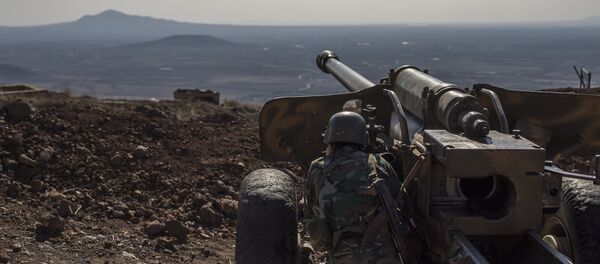DAMASCUS (Sputnik) — Negotiations between Syrian Kurds and Damascus can lead to the decentralization of power in Syria and creation of new provinces in the north of the country, Kurdish politician Reyzan Heidu told Sputnik on Tuesday, stressing the progress in dialogue between the two parties.
"In my opinion, we are moving toward decentralization of Syria, not federalization. In the beginning there was [de facto autonomous Kurdish region] Rojava, then northern Syria, now there is the division of regions… Before the crisis, there was a proposal to create the province of Afrin [the city in the province of Aleppo, belonging to Rojava]… and Aleppo will be divided into three parts… perhaps with the center in Nubl and Zahraa… Work is being done gradually, and there is a big progress," Heidu said.
The politician stressed that the dialogue between the Syrian government and the Kurds "had got on the right track," which had a positive impact on military cooperation in Raqqa and Deir ez-Zor.
"In the north and east of Aleppo province, including Idlib, we see a common position of the Kurds and the Syrian army, namely the recognition of the Turkish forces [on the Syrian territory] as illegal and therefore occupying," Heidu said.
In March 2016, the Syrian Kurds announced the creation of the federal region of Rojava in northern Syria amid the ongoing Syrian civil war. The Syrian government responded by saying that the Kurds’ unilateral decision had no legal power.
Ankara considers the Kurdish People's Protection Units (YPG), the military branch of the Syria's Kurdish Democratic Union Party (PYD), to be affiliated with the Kurdistan Workers' Party (PKK), listed as a terrorist organization in Turkey. Both PYD and YPG, as well as the Kurdish-led Syrian Democratic Forces (SDF) have been receiving support from the United States in fighting IS terrorists in Syria.



